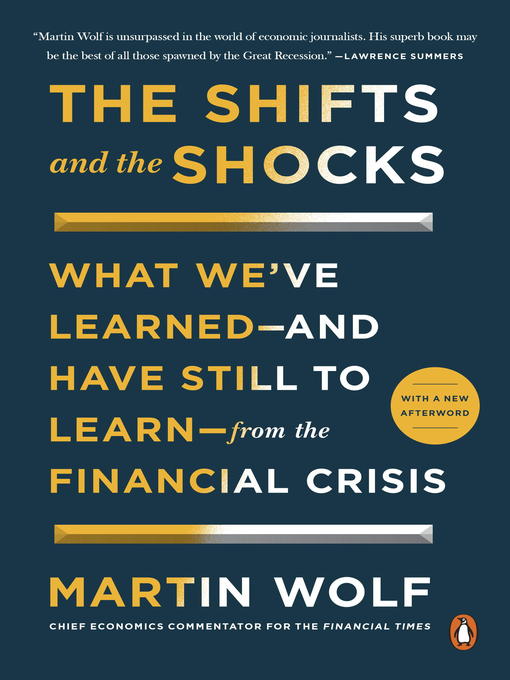From the chief economic commentator for the Financial Times—a brilliant tour d’horizon of the new global economy
There have been many books that have sought to explain the causes and courses of the financial and economic crisis that began in 2007. The Shifts and the Shocks is not another detailed history of the crisis but is the most persuasive and complete account yet published of what the crisis should teach us about modern economies and economics. Written with all the intellectual command and trenchant judgment that have made Martin Wolf one of the world’s most influential economic commentators, The Shifts and the Shocks matches impressive analysis with no-holds-barred criticism and persuasive prescription for a more stable future. It is a book no one with an interest in global affairs will want to neglect.

-
Creators
-
Publisher
-
Release date
September 11, 2014 -
Formats
-
OverDrive Read
- ISBN: 9781101608449
-
EPUB ebook
- ISBN: 9781101608449
- File size: 6901 KB
-
-
Accessibility
-
Languages
- English
-
Reviews

Loading
Why is availability limited?
×Availability can change throughout the month based on the library's budget. You can still place a hold on the title, and your hold will be automatically filled as soon as the title is available again.
The Kindle Book format for this title is not supported on:
×Read-along ebook
×The OverDrive Read format of this ebook has professional narration that plays while you read in your browser. Learn more here.